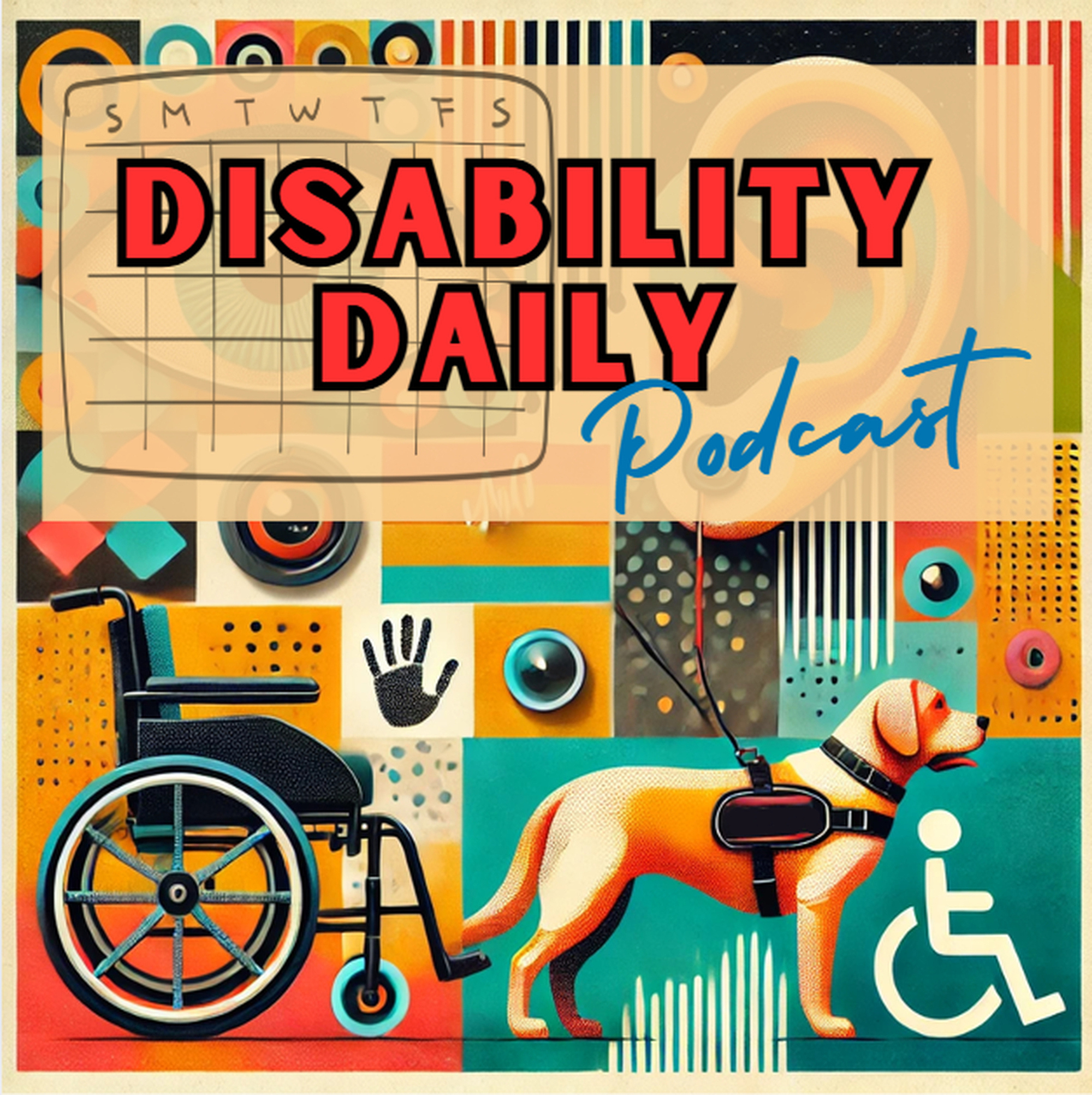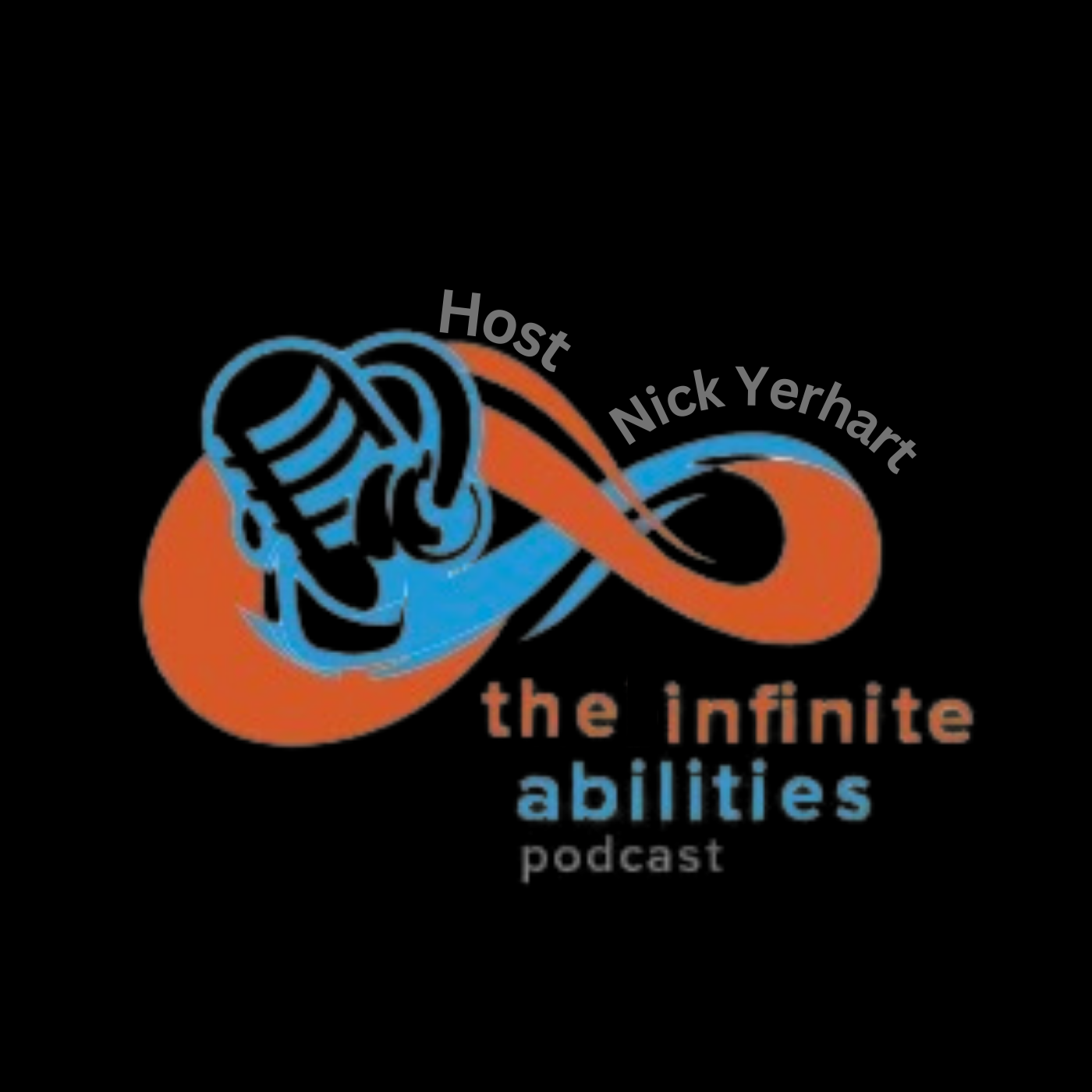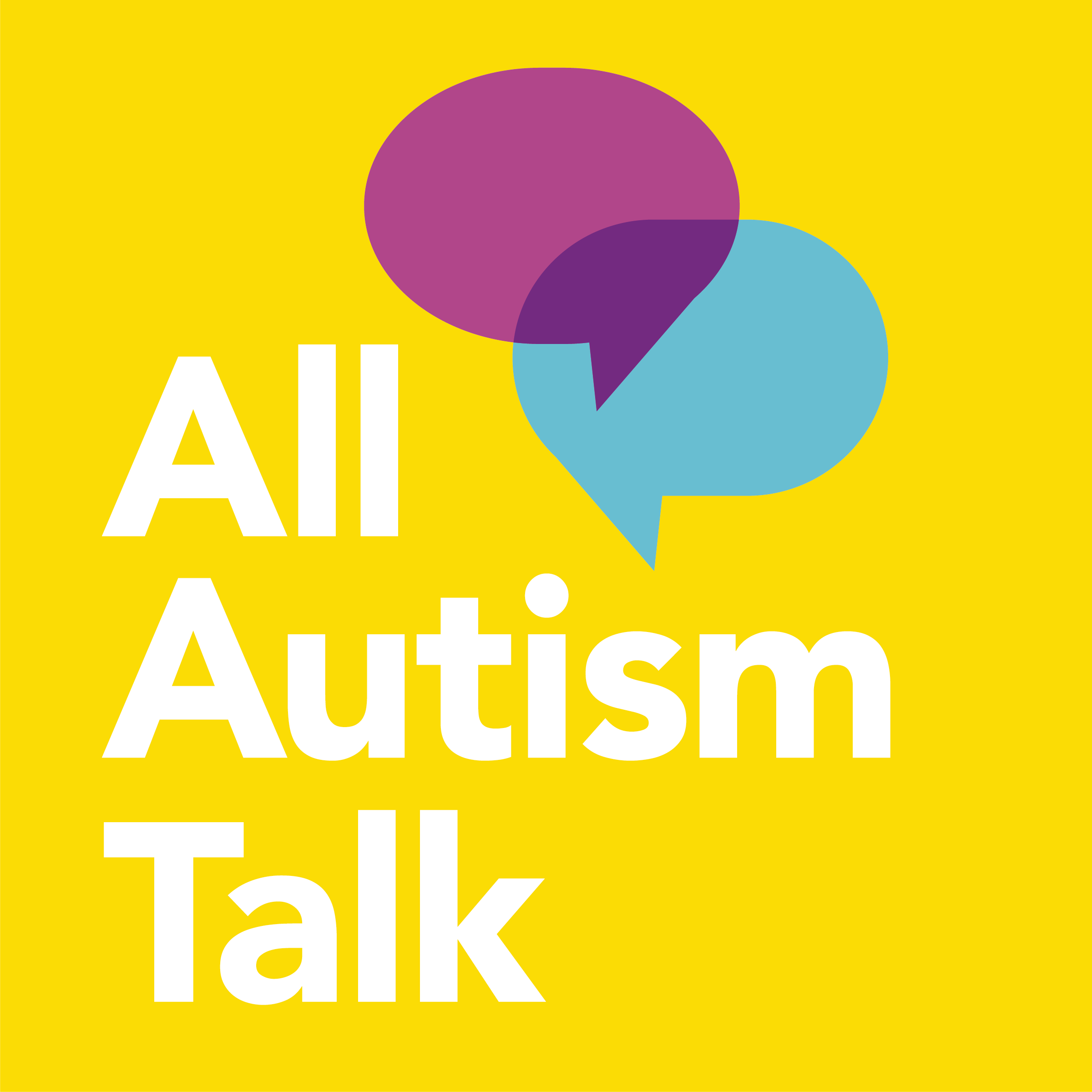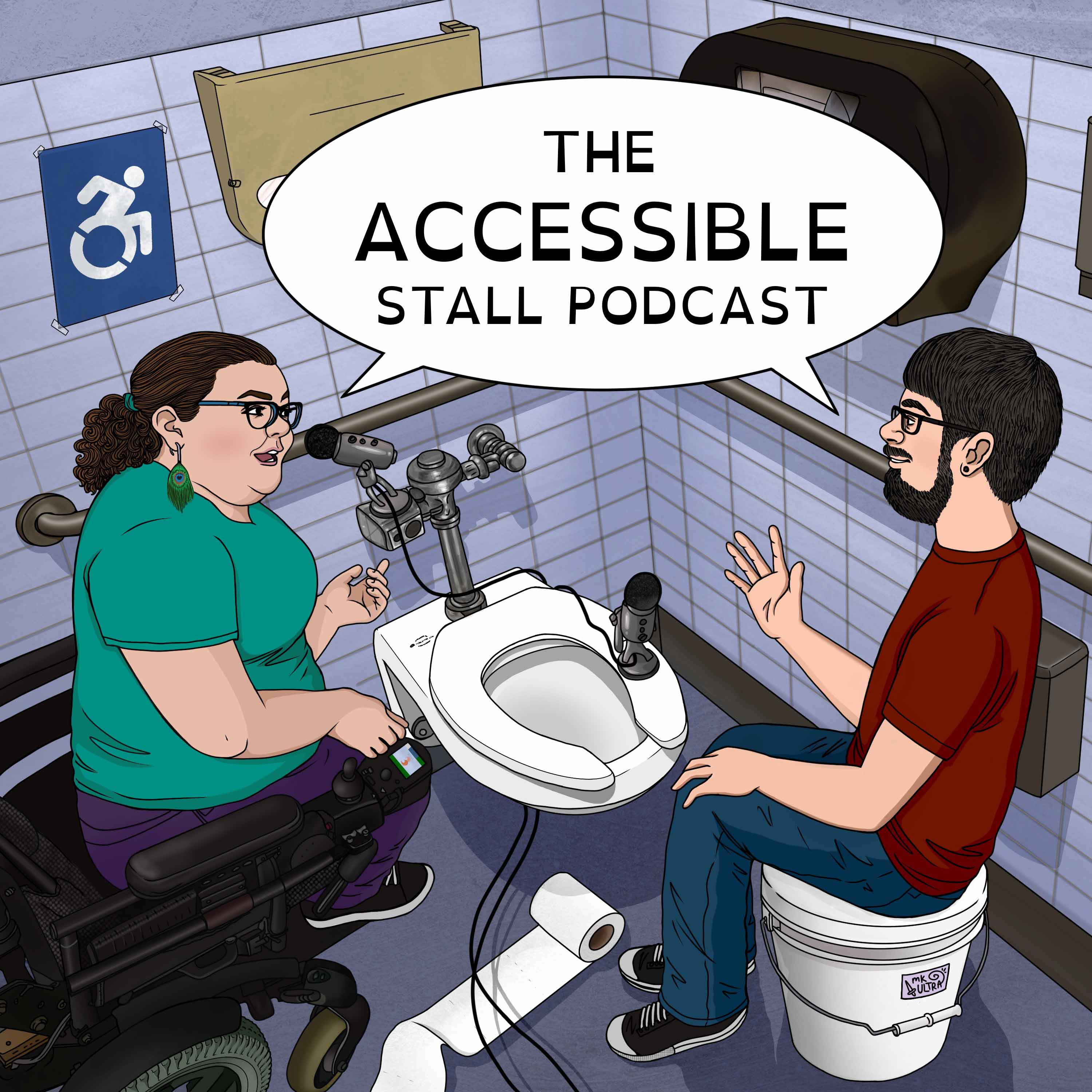
The Post Secondary Transition Conversation
We talk about the ins and outs (and everything in between) of the secondary transition process for families of students with disabilities! Hosts Meghan (Smallwood) and Patrick (Cadigan) serve as supportive guides, leading families step-by-step up each rung of the transition ladder.
Also check out our parent website: https://www.postsecondarytransition.com
The Post Secondary Transition Conversation
080. Transition Summer Checklist
Hosts Meghan (Smallwood) and Patrick (Cadigan) discuss a summer checklist for families navigating the transition process. They talk updating DD (Developmental Disabilities) information, ensuring recent assessments/IEPs, connecting with other parents for advice, and researching community services. They emphasize the importance of creating a home folder for documents, understanding timelines with coordinators, and exploring volunteer opportunities to build work skills. All this and more! Join the conversation!
Episode Keywords:
summer schedule, transition topics, DDA coordinator, current request, agency choice letter, assessments, IEP reevaluation, parent networking, guardianship, volunteer opportunities, community resources, transition timeline, work skills, local businesses
Links:
Post Secondary Transition (site)
Transition Maze (blog)
Ep. 30 Exit Year (link)
Ep. 72 Business’s For All Fair (link)
Maryland (specific) Links/Supports:
Oh, What A Cake! (site)
Libs Grills (site)
Apple Spice (site)
Biggs and Featherbelle (site)
That Smoothie Place (site)
Zoe's Just Dezzerts (site)
Micro-business:
Leaders of the Pack (site)
Spencer's Groovy Tie Dye (site)
Moore Crunch (site)
To download a copy of a transcript for this episode or any of our previous conversations, click here.
Also visit our Podcast webpage to find links to all of our other discussions; go to www.p2transition.com.
Additional information about post-secondary transition can be found at our website.
The Post-Secondary Transition Podcast Facebook page.
Visit our YouTube Channel to find additional video resources.
Intro/Outro music by AudioCoffee from Pixabay.
Transition music by Joseph McDade from Transistor.
Welcome. This is the Post Secondary Transition podcast where we have conversations around the ins and outs and everything in between of the transition process for families of students with disabilities. I'm one of the hosts. My name is Patrick Cadigan, and I am a public school transition coordinator. As always, I have a co host, and who would that be?
Meghan Smallwood:I am Meghan Smallwood, and I am also a public school transition coordinator.
Patrick Cadigan:All right, friends, as usual, we are back, and big shock to everyone. Meghan and I are transitioning into our summer schedule, which means that we'll be having a few more conversations, but then we tend to take off for at least one month out of the summer. So today we thought we would sit down and have a conversation. And Meghan, you actually were the one that came up with this idea. Do you want to tell us what we're going to be talking about?
Meghan Smallwood:Yeah, I always feel like at this time of the year, school's winding down, it's kind of that time where parents are like, Okay, well, what can I think about over the summer? What can I do while I'm not, you know, having your resources available? So I just wanted to go through a little summer to do list related to transition topics. So if you find that you have a spare amendment, which is, you know, we know we don't have spare minutes, but you know, maybe it's a little less chaotic. Or you can actually think about some of these topics. Just a little list of things to consider.
Patrick Cadigan:All right, a little list of things to consider. So as we are speaking, I already have my keyboard open because I also am genuinely curious about this list. So, Meghan, this is the list that you put together. What is the very first thing on this list that a family can do at the onset of the summer?
Meghan Smallwood:Off the top of my head, the thing that I heard a lot from parents was, I don't know who my coordinator is. I don't know where I stand with DDA. I don't know anything about DDA. Now is the time to reach out and figure out where you are in their database. If you did an application years ago, they could just be sitting pretty, but you need to update information, or maybe they assigned you coordinator and you just haven't heard so now is the time to kind of track down and investigate. It's easy. You can go to DDA website, and we, in our area, live in the central region for DDA, but depending on where you are in Maryland, it'll list the county and your contact. So start there and just mention your child's name and their date of birth, and they'll respond with what it says in the database. And I know we've met, we've talked many times before about the different statuses with DDA, but at the very least, if your child is approaching 18, or has recently turned 18, this is a perfect time to make sure that they've been changed over to current request and get that process going to have a coordinator selected.
Patrick Cadigan:This came up for me right before we took the break. Student turns 18. They go from...
Meghan Smallwood:Future needs...
Patrick Cadigan:...future need to current request.
Meghan Smallwood:Current request.
Patrick Cadigan:But in order to be able to do that, they need to be assigned a Coodinator of Community Service...
Meghan Smallwood:However, that does require a step by the guardian or parent, because they're not just going well, they can assent randomly assign, but first they give you the choice to make the agency selection for your coordinator.
Patrick Cadigan:I actually think that that was the direction that I was going in...
Meghan Smallwood:Yeah.
Patrick Cadigan:And then my brain just stopped working, because it's the summer.
Meghan Smallwood:It's summer, yeah, yeah. So if you have, if your child has been changed to current request, they may tell you we're sending out a choice letter, an agency choice letter, and you'll get this lovely, generic letter in the mail with a list of different agencies to pick from. And I know we've talked about this many times, it's really comes down more to the coordinator than the agency, but make sure you make a selection so you at least get that ball rolling.
Patrick Cadigan:And one other thing that I will throw out, and this is a small little detail, but it is an important detail that Meghan just brought up, that now, as you are getting ready to transition into this process, do be paying attention to mail that you get, because a lot of times these, these mailings that you're getting are so non descript, and you would think that there would be, like, bells on some of these letters that you're getting, or at least, you know, just something, but they're really not, so just be paying attention.
Meghan Smallwood:Yep, I agree. I know sometimes it's slipped by, and sometimes they can be electronic too, so check your spam junk mail, just to make sure you're not letting anything slip by. And if you haven't gotten anything, that's also not very uncommon. Not to say anything poor about our state funding agencies, but sometimes it does slip by, so just cover all the bases.
Patrick Cadigan:What is on number two for the list of summer things to do?
Meghan Smallwood:So the second thing that came to mind, which I know I've had a lot of conversations with families about, were checking on the last battery of assessments that were completed for your child. Find out what year that was. Because we've talked about this. A lot of the agencies prefer to have assessments within the last three year window. So it's good to be aware of when those last assessments were completed, how old they are, and then also, if you have a copy of your child's IEP, check when their next re evaluation date is, because if it aligns nicely and new assessments are needed, it can be done at that time. So just make yourself aware of all these dates as you're kind of filing and organizing paperwork, assessment dates, what assessments were completed, re-evaluation dates, how it all aligns with that exit year date.
Patrick Cadigan:And again, this is something that I will throw in as a former special educator that I have worked with teams that understand this transition process, so the assessments that are necessary as they are getting ready to transition out, and the dates of those assessments are usually top of mind for those special educators and the service providers. However, if you find yourself in a position where, as a parent, that you either do not have a transition coordinator, or if you are not sure, reach out to your special educator, start asking questions.
Meghan Smallwood:Yeah, and again, as we always said, You are that constant. So keeping these facts top of your mind and not having to always rely on other people will be very beneficial when you start to transition out of the school system, so that you are aware and not "lost in the sauce."
Patrick Cadigan:Now, what is on number three on the checklist for the summer?
Meghan Smallwood:I think this is a good time, if you are connected with other parents, to ask them, Hey, can we just go grab a cup of coffee? Or can we just get together and talk about things? Don't be alone in all of this, you know, talk about what their decisions were when they had to make them for certain milestones. You know, what comes to mind most is guardianship versus alternatives to guardianship, how their SSI experience went what they decided to do in terms of, like, an ABLE account, or any of that, I think it's just so important to talk to not just the transition specialist that you're working with, but other parents who are living that life and gathering information about what paths they chose and just taking it all In. I recently talked to another parent who was thinking about self direction, and she knew someone who worked in the schools with her, and also was kind of a friend. And I said, Now is the time just ask her for coffee this summer and just pick her brain. You know, the best part is, I think, in my experience, parents and guardians who have gone through it really do want to share and better prepare others with you know their journey. So it's don't be afraid to ask.
Patrick Cadigan:And speaking of not being afraid to ask for parents who are just now beginning this journey, and parents who are also starting the research process of this experience, don't forget that we have a handy dandy website, www.postsecondarytransition.com that has resource links, information and resource links for a lot of the things that Meghan just mentioned, like guardianship, alternatives to guardianship, SSI, transition tools. There is a lot of information at that website. So again, if you are just starting this process, or if you're even a new listener, jump over to the website. Give it a look. There's a lot of good stuff there.
Meghan Smallwood:Yeah, for sure.
Patrick Cadigan:All right, we've got item number one, item number two, three, and now four? Is there a fourth item?
Meghan Smallwood:Oh, there's a few more, yes. The fourth one, I told you, my brain was on fire. I was just like writing them all down. Back to that Coordinator of Community Service, your DDA coordinator, once you have one established, if you have one established, be sure to talk to them. Reach out. Maybe it takes a couple times, but ask them about what options there are in your area for your child after they leave. DDA, you know, usually has a list or database of different providers, whether it be the traditional provider or, you know, self directed connections. But start getting those resources and information, and just do the research on your own too, because I know those lists are very generic, and they might not give all the specific information that you are looking for, but you can start, you know, reaching out to people. You can start going to the website, looking around. So now is the time to start building that transition for. Style, you have to know what's out there and what the possibilities are.
Patrick Cadigan:Yeah, speaking of that, it's funny that is top of mind. One of the things that we just recently talked about on our blog was the creation so in the in the totality of transition and all of the complexity, Meghan has always pushed that beginning step that seems so simple but is so important is creating that home folder, and that home folder where all of those documents are going to go. So I had commented about it on a blog post that I wrote. So if you get a chance again, www.postsecondarytransition.com/blog, it's a good one too. All right. So that was number four. What is item number five?
Meghan Smallwood:So that kind of piggies back on what I was just saying with the coordinator. However, if you are exiting in the year to come, this is even more important to ask them, Hey, let's go over what the timeline looks like. You know, what are they going to need from you, and when are they going to need it? Because as soon as school starts back up, you're going to hit the ground running, and you're going to want to make sure that you were on that timeline in order to get moving, you know, at the pace, you need to to get things in place in a timely matter when they exit. So reach out to your coordinator and say, Hey, I'd like to talk about the timeline and find out you know when you need to start worrying about making decisions.
Patrick Cadigan:Yeah, that is again, this past year, I ran into experiences like that. It's very interesting to the different approaches that different families take as they are approaching that exit year. So that is not a judgment in any way, shape or form. It's just, you know different strokes for different folks. But don't be afraid to assess where you are in the process. Stop, take a breath and then reach out, because you never know what's going to happen.
Meghan Smallwood:And I think it's important to mention too, don't just wait on your coordinator. Reach out to you. Because I think a lot of families feel like, okay, they'll let me know. But remember, and I know we've talked, we talked to Jamie recently about caseloads of different coordinators and just everything going on. You want to make sure you're advocating for what your child needs and that you don't get left behind. So it does not hurt to reach out and make sure that they know, hey, we're exiting. We need your support.
Patrick Cadigan:All right. So that was number five on the list of things to do during the summer for transition. What about number six?
Meghan Smallwood:Okay, I got two more, and we're switching gears here. So I know we've talked a lot about the transition timeline and preparing for exit, but I know there's a lot who are younger and are just, you know, looking to better prepare themselves for the next school year. So looking for things to do. And this always comes up in the springtime for families, what can my child do over the summer to practice those work skills, to get ready, you know, for the year with vocational opportunities, look in your area for volunteer opportunities. Look at where they might have volunteered during the year with school. I know we have local gardens. We have local horse farms that are always looking for volunteers here, you know, it's just a matter of searching the area to find out what's available, but also draw on the any connections you might have you know. Think about if you go to church, do you know anyone there that, hey, maybe they would be able to use a volunteer for a couple hours or so. Think of the places that you go frequently in the community that they know your child, and don't be afraid to just kind of start that conversation. Hey, you know, we'd love to volunteer and help out, just to give your child that time to practice those work skills, and also within the home base, add on more chores. You know, the summer is the perfect time, maybe not in their minds, but just the perfect time to build on what they might have been doing. I mean, I did this with my own kids. I said, Hey guys, you're great at putting your laundry away. We're going to take it back a step, and now you're going to help me fold it and put them in the machine. So, you know, just think of the possibilities of different skills that they can work on over the months that you have them with you at home.
Patrick Cadigan:And you say that now as a parent, I'm feeling guilty because I'm like, Yeah, I'm not doing that with my kids.
Meghan Smallwood:Well, let's just say the response was not very warm and fuzzy from them, but yeah, you know.
Patrick Cadigan:When my son gets a chance to sit down on the Xbox, oh, there's all warm and fuzzy and responses, however...
Meghan Smallwood:Yeah, exactly when I tell them electronics go off, and then they say they're bored, I'm like, well, perfect. I've got something for you do.
Patrick Cadigan:Yeah, good call. I'm sure, like you said, that goes over well. So summer list of things to do. What's next?
Meghan Smallwood:Ok, the last one I had on my list...
Patrick Cadigan:Last one.
Meghan Smallwood:...kind of ties back in with those local places in the community. Think about some of the local businesses that, like I said, they might have worked in within their work programs, or, you know, that have hired and supported individuals with disabilities. This is a good chance to go visit and just kind of see what possibilities are out there. I know in our area, Patrick had mentioned in one of our past podcasts about the business fair we did, and how there are businesses around the area that have been started up by families with individuals with disabilities, and they employ other individuals, and they run it so that their child or a young adult can work there. You know, like I say you're gonna go have coffee with another parent and talk about things. Why don't you go to one of these places and just see firsthand what could be? And if you have a second to talk to them, you know, just to get an idea, I think it's just so important that, you know, we keep in mind we don't have to box any of our young adults in anywhere. The possibilities are endless. And it's just so refreshing to go out and see that. And I think it just kind of pushes you and maybe motivates you a little bit more to think about what could be. So now is the time.
Patrick Cadigan:Yeah, and that is really good stuff. And I will tell you what I actually have one more thing that you could add to the list. Now this is going to be more so for new listeners to the show, or again, parents who are just now starting this process. P2transition.com, the website for the series of discussions that we've been having. There is a library, and I mean, a li...we're on what? This is
Meghan Smallwood:I think so. going to be episode number 80, right?! There...
Patrick Cadigan:Yeah, there is a library of conversations, content that we have you could take the summer to just review and go through and just find those topics of interest to you and press play. It helps us. It helps you. And that is something that I highly, highly encourage.
Meghan Smallwood:Yeah. Good one.
Patrick Cadigan:With that being said, this ended up being a little bit of a longer conversation than I was thinking. And I love the content, though. So now I also have my checklist of things that I'm going to throw out to parents, and definitely check out the links that we're going to put in the show notes, because they will have all of the references to what we were talking about, and thanks so much for joining us, and we will visit with you again soon.
Meghan Smallwood:As always, you'll find links to the information from our conversations in our show notes. We would love for the information from this and all our other discussions to reach as many families as possible, and we need your help to do that. You can find our conversations at www, dot p2 transition.com, like, follow, share out the podcast. Our conversations are posted to all the major platforms, including Apple podcasts, Spotify, YouTube, music, and that's just naming a few. So please share and share often.
Patrick Cadigan:Please check out our YouTube channel. We've done some of the legwork for you by curating videos of topics that revolve around transition. We have playlists for guardianship, alternatives to guardianship ABLE accounts, and there's more to come. So please be sure to subscribe there as well. And finally, check out our website, which is full of information and links to resources around the transition process. Open your web browser of choice and serve to www.postsecondarytransition.com we thank you so much for the time that you've spent with us, and look forward to talking again soon.
Podcasts we love
Check out these other fine podcasts recommended by us, not an algorithm.

T21Mom-A Down Syndrome Podcast
T21Mom.com
The Collaborative IEP
Ashley Barlow
Disability Daily Podcast
Katie Healey, PhD, CPACC
The Infinite Abilities Podcast
Nick Yerhart
All Autism Talk
All Autism Talk
The Accessible Stall
Kyle Khachadurian and Emily Ladau
Disability Deep Dive
Disability Rights Florida
STAY Tuned: Supporting Transition-Age Youth with mental health conditions
STAY Tuned at Transitions to Adulthood Center for Research
Moms Talk Autism Podcast
Shannon Korza, Brittney Crabtree, Tash Dillmon, and Jean Mayer
Your Child's Brain
WYPR Baltimore


